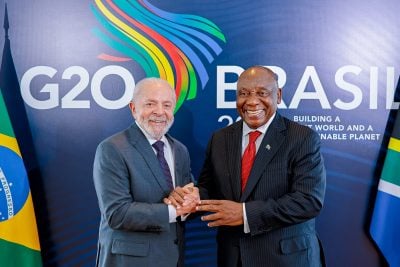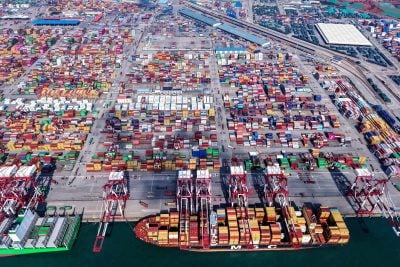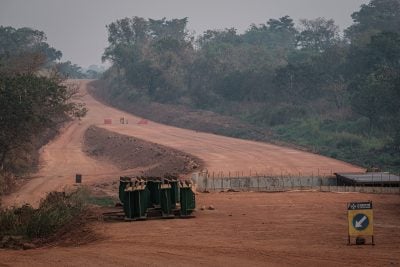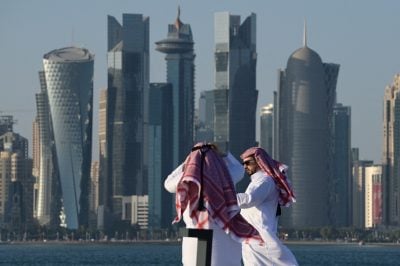On 19 October, the US Department of State outlined the measures the government of Zimbabwe can take for Washington to end its sanctions on the country.
US officials called for President Emmerson Mnangagwa’s government to prosecute former and current regime officials responsible for corruption and human rights abuses and build back its democracy.
“We’re asking that the Zimbabwe government take meaningful noticeable material actions that strengthen the democratic processes, build the institutions back to its constitution,” the US Department of State sanctions coordinator, James O’Brien, told a press briefing.
In September the US updated its sanctions regime on Zimbabwe, which currently targets 83 Zimbabwean individuals and 37 entities, including President Mnangagwa, and his top adviser Kudakwashe Tagwirei.
Those sanctioned by the US are forbidden from travel to America, have their US assets frozen, and are prohibited from transacting with the US banking system, or having business dealings with American companies.
“[In Zimbabwe] essentially we are focused on the people who are responsible for and profit from human rights abuses, corruption and anti democratic actions,” O’Brien said.
The Department of State stresses that sanctions do not block trade and investment with non-sanctioned individuals, and are not intended to penalise the economy.
“We are always willing to work with businesses or work with those who fear sanctions are getting in the way of legitimate business activity,” O’Brien said.
Officials invited companies wishing to operate in the country to seek clarity on the restrictions if they were unsure about red lines.
“If that company wants to talk to us we’re very happy to do that. [We] spend a lot of time talking to companies so they can be comfortable in certain environments.”
The US first imposed sanctions on specific individuals in Zimbabwe during the rule of the independence icon turned authoritarian leader, the late Robert Mugabe, for undermining democratic processes, such as passing laws restricting media freedom and the right to protest.
Undermining democracy
On 15 September, the US Department of the Treasury’s Office of Foreign Assets Control added Stephen Mutamba, Zimbabwe’s deputy police commissioner, to the sanctions list for his role in “undermining Zimbabwe’s democratic processes and institutions”, including advocating that international observers should be prevented from monitoring the 2023 elections.
“It is imperative that ZANU-PF allow full participation across the political spectrum in next year’s elections,” said under secretary of the Treasury for terrorism and financial intelligence, Brian E. Nelson, at the time.
President Mnangagwa has called for the removal of sanctions, calling them a “cancer” that eats away at the economy.
In August this year, two visiting US senate officials were tailed and circled by vehicles believed to belong to Zimbabwe’s state security forces. The incident was an “act of intimidation” that “resonates incredibly poorly” with officials shaping sanctions policy, said Department of State officials at the 19 October briefing.
“Those are the acts of a government that does not want to be engaged,” said O’Brien.
Cost of sanctions
Since sanctions came into effect, Zimbabwe has lost access to more than $100bn in bilateral donor support, grants, and loans from the IMF, World Bank, and the African Development Bank, a 2021 report by the United Nations Special Rapporteur found.
At the height of sanctions, Zimbabwe’s GDP contracted from $6.8bn in 2001 to $4.4bn in 2008, according to the World Bank.
In 2021, Zimbabwe’s exports to the US were valued at $9.27m including iron, steel and raw commodities such as tea and tobacco, according to the UN’s Comtrade database on international trade.
The US is Zimbabwe’s single biggest donor, providing $317m in bilateral assistance to support democracy and governance, agriculture, and health programmes in 2021, in addition to $51m in humanitarian aid.
Want to continue reading? Subscribe today.
You've read all your free articles for this month! Subscribe now to enjoy full access to our content.
Digital Monthly
£8.00 / month
Receive full unlimited access to our articles, opinions, podcasts and more.
Digital Yearly
£70.00 / year
Our best value offer - save £26 and gain access to all of our digital content for an entire year!

 Sign in with Google
Sign in with Google 





